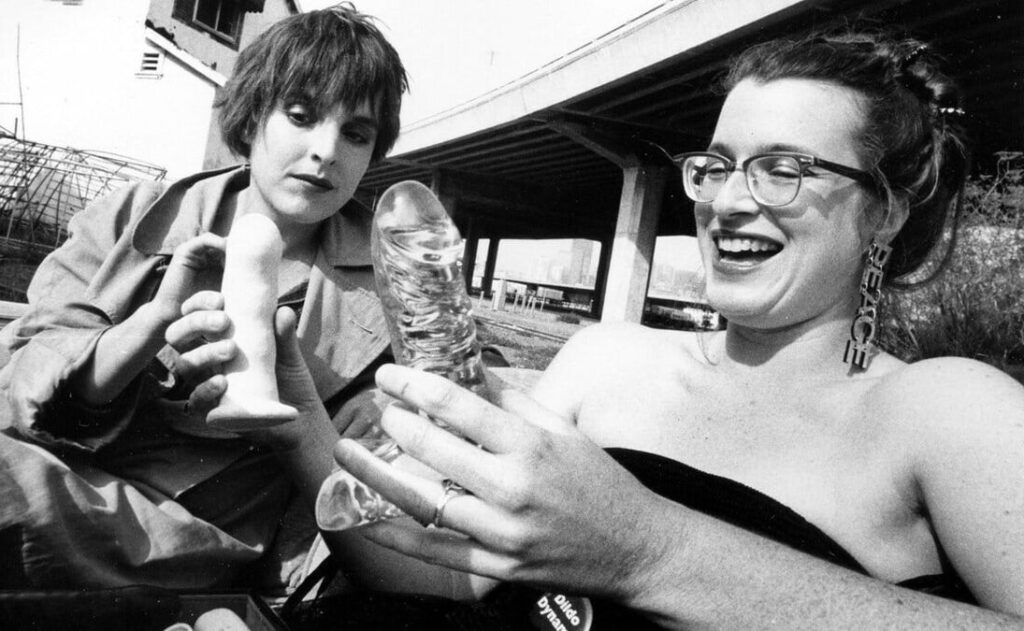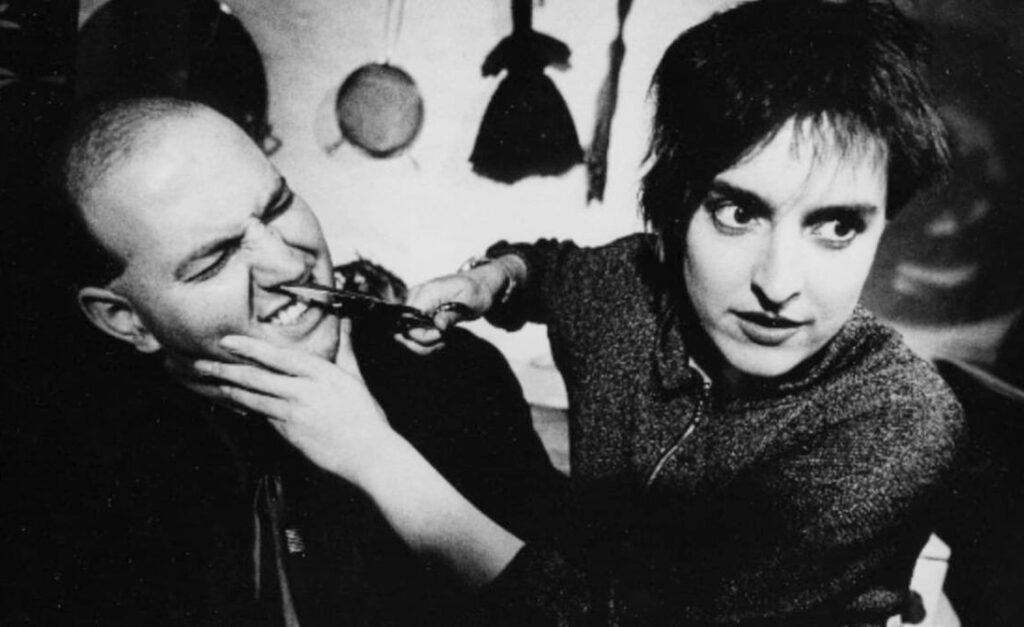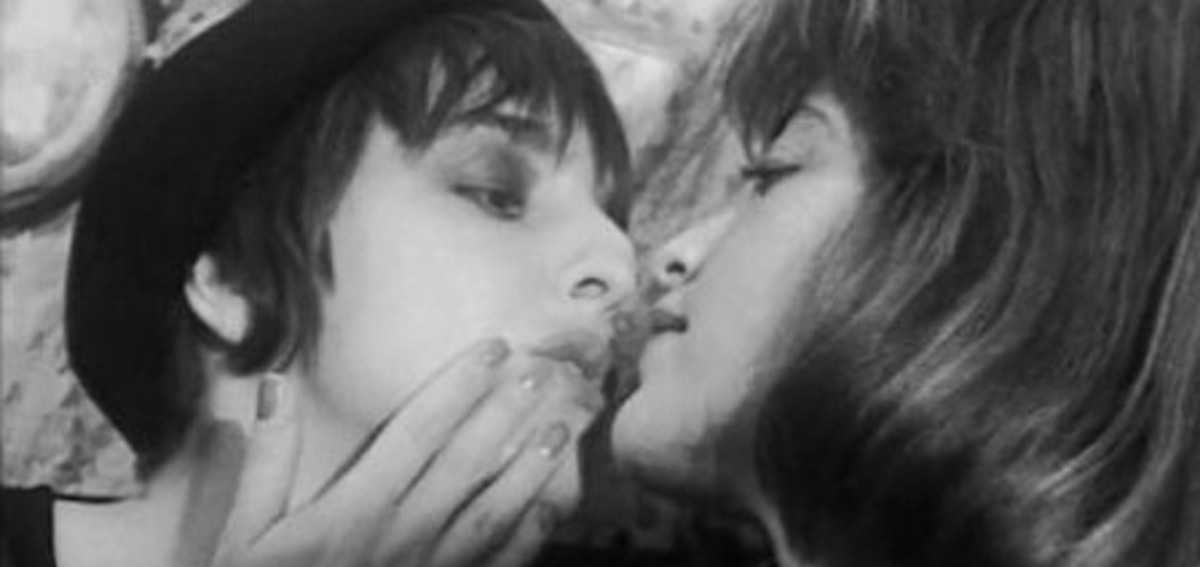Virgin Machine is not a timeless movie. It is deeply beholden to the politics, style and technology of the time it was made in. In 2023, much of the film is passe. Applying a historical context changes this. Virgin Machine is a fascinating artistic snapshot of feminist and filmmaking in West Germany; a country that would cease to exist less than two years after Virgin Machine’s release.
The film focuses on the introspective journalist, Dorothee. In West Germany, Dorothee wanders aimlessly wondering about the nature of love and human existence. Until she sees an interview with an American woman. This interview outlines the themes and thesis of Virgin Machine. The woman in the interview explains that women need to make porn and erotica. She says sex is natural, enjoyable and that the lack of female created erotic material is an insult to female sexuality. So, Dorothee decides to travel to The United States. Her official reason for going is to find her mother, who worked as a stripper. But Dorothee is also deeply curious about the American sex industry. Immediately, Dorothee meets some great ambassadors for the industry. These women open Dorothee’s eyes on topics of sexuality, sexual fluidity and sex work.

The bones of the plot of Virgin Machine are near-identical to any number of moralizing exploitation films: A woman with a steady life leaves home in search of answers. She encounters sex workers who take her under their wing. Dorothee then gets deeper into this subculture. She also becomes infatuated with a woman and has a lovely date only to learn that the woman is a sex worker. The end of the film shows Dorothee performing a strip routine with her new friends. The bones of this story are usually used for some sort of cautionary tale. Her increasing involvement with the sex community would be used for thrills, drama and tragedy. But Virgin Machine flips this narrative. The beats remain the same, but the outcome is joyful and freeing.
Instead of condeming it, Virgin Machine is a celebration of queer sexuality. And not just as in queer meaning non-heterosexual. This film takes fringe and subversive sexuality and puts the spotlight on it. Drag kings, sex educators and lesbian sex workers make up the cast. And more than that, their subversive sexuality represents freedom. Dorothee didn’t know she was repressed, but she was. The film shows you these aspects of queer sexuality through Dorothee’s eyes. They’re foreign to her, but not unwelcome. Dorothee loves this queer, sexual community she’s found. Going to a strip club is a joyful experience for Dorothee, for the viewer and for the drag performer onstage.

Virgin Machine is very much about sex positive feminism. This is a strand of feminism that dominated third wave feminist discourse in the 2010s when I came of age. So, the film’s celebration and support of the sex industry and female sexuality isn’t shocking to me. But in 1988? It absolutely was. This film and director Monika Treut’s first film, Seduction: The Cruel Woman caught lots of flack from lesbians and feminists. Why? Because these queer, sex-focused films were considered obscene. Feminism in 1988 wasn’t exactly ready for such frank discussion and celebration of female sexuality. So, Virgin Machine’s depiction of a sex worker explaining to a fascinated Dorothee how dildos can improve sex is genuinely cutting edge. So too is its casual and often celebratory depiction of sex work.
Virgin Machine is a truly radical film for its time. The treatment of female and queer sexuality as liberatory and celebratory really makes it stand out. Yet it is very much a movie of its time. The style of the film fits easily within indie and underground cinema from the time. It’s also a distinctly West German film in regards to style as well as a focus on controversial but progressive social ideals. But even in underground cinema, few films from the 1980s treat female sexuality with such joyful frankness. All of this makes Virgin Machine a fascinating look into art and queerness in a different time and place.
Overall rating: 6.4/10
Other WLW films in similar genres
Films from West Germany
Depictions of sex work from female directors


Be First to Comment